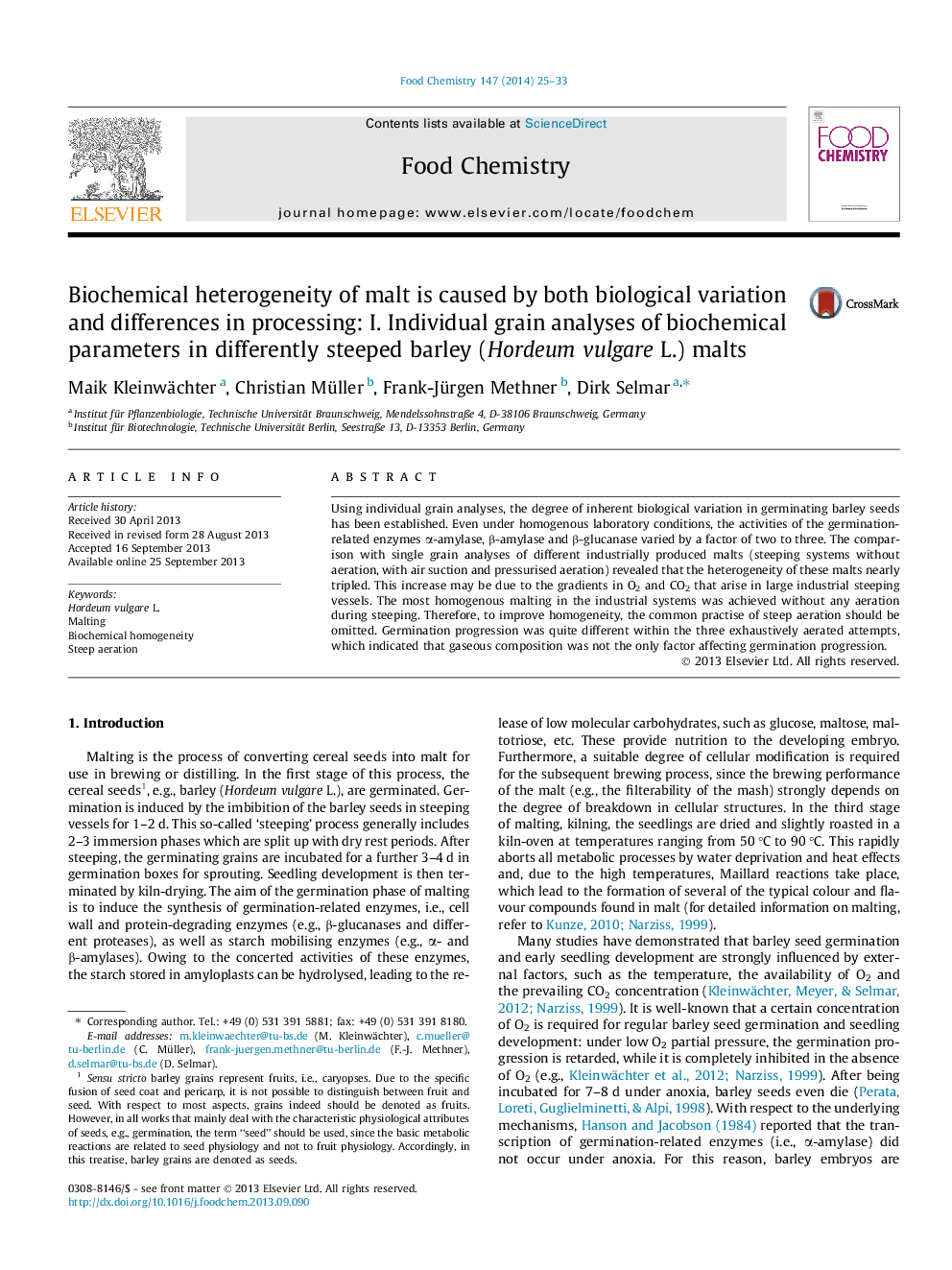| Article ID | Journal | Published Year | Pages | File Type |
|---|---|---|---|---|
| 7599608 | Food Chemistry | 2014 | 9 Pages |
Abstract
Using individual grain analyses, the degree of inherent biological variation in germinating barley seeds has been established. Even under homogenous laboratory conditions, the activities of the germination-related enzymes α-amylase, β-amylase and β-glucanase varied by a factor of two to three. The comparison with single grain analyses of different industrially produced malts (steeping systems without aeration, with air suction and pressurised aeration) revealed that the heterogeneity of these malts nearly tripled. This increase may be due to the gradients in O2 and CO2 that arise in large industrial steeping vessels. The most homogenous malting in the industrial systems was achieved without any aeration during steeping. Therefore, to improve homogeneity, the common practise of steep aeration should be omitted. Germination progression was quite different within the three exhaustively aerated attempts, which indicated that gaseous composition was not the only factor affecting germination progression.
Keywords
Related Topics
Physical Sciences and Engineering
Chemistry
Analytical Chemistry
Authors
Maik Kleinwächter, Christian Müller, Frank-Jürgen Methner, Dirk Selmar,
